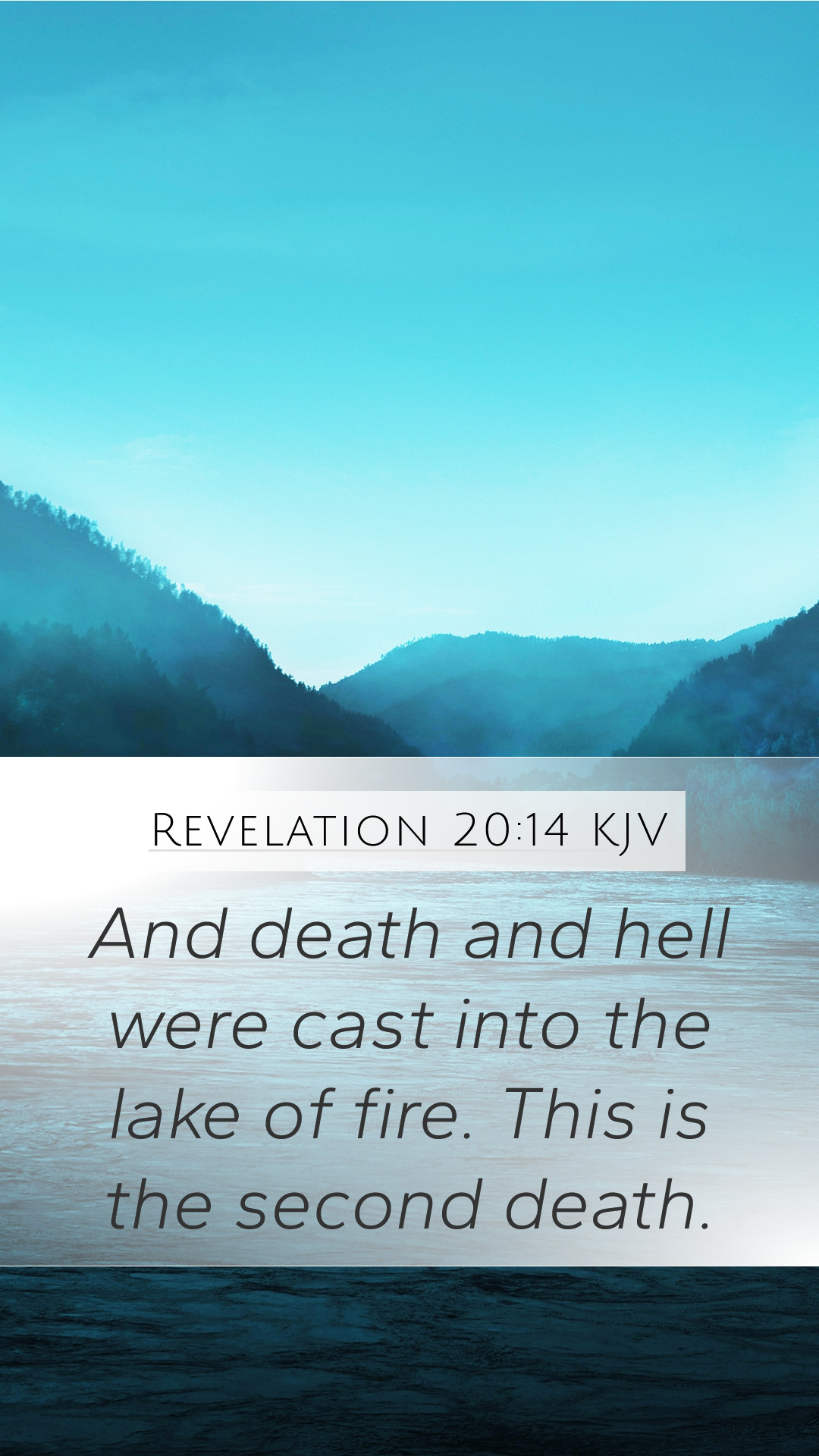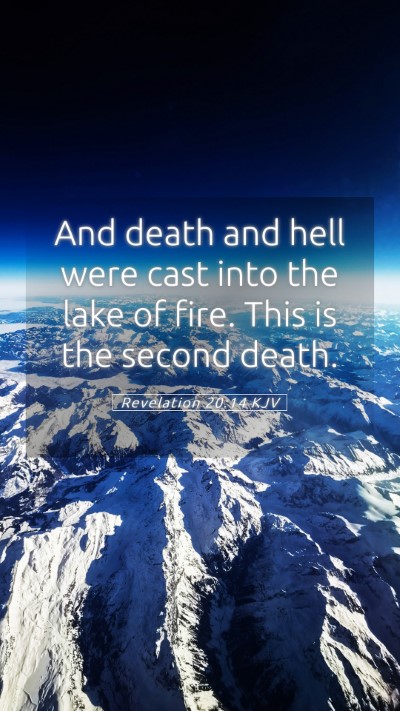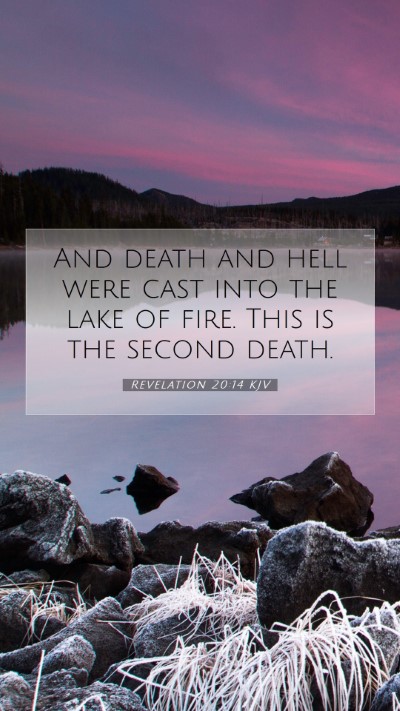Understanding Revelation 20:14
Revelation 20:14 states: “Then death and Hades were thrown into the lake of fire. This is the second death, the lake of fire.” This verse stands as a profound conclusion to the discussions about the final judgment and the destination of those opposed to God.
Scripture Analysis
The meaning of Revelation 20:14 can be explored through several lenses, including the historical context, intended audience, and the broader themes of judgment and resurrection.
Contextual Background
In the Book of Revelation, John presents a series of visions that prophetically depict the end of the world, the final judgment, and the establishment of God's kingdom. Revelation 20 describes the final fate of evil and the ultimate restoration of creation.
Key Themes and Interpretations
- Death and Hades: The terms "death" and "Hades" are personified, symbolizing the ultimate enemy and the realm of the dead. Their fate is indicative of God's power over death itself, foreshadowing the full restoration to life that believers will experience.
- The Lake of Fire: Often interpreted as the final place of punishment for those not found in the Book of Life, the "lake of fire" signifies eternal separation from God. This serves as a stark reminder of the consequences of rejecting God's commandments and grace.
- The Second Death: This phrase denotes the spiritual death that results from final judgment, a state where eternal life is forfeited. Understanding the second death is crucial for grasping the seriousness of rebelling against God.
Bible Verse Meanings
Commentaries such as those by Matthew Henry, Albert Barnes, and Adam Clarke delve into the significance of this passage:
- Matthew Henry: He emphasizes that death and Hades being thrown into the lake of fire illustrates God's final victory over all evil. Henry views this verse as a depiction of the ultimate triumph of God’s justice over sin.
- Albert Barnes: Barnes suggests that the lake of fire represents a state of perpetual despair and divine wrath, reinforcing the idea that God's judgment is absolute and irrevocable.
- Adam Clarke: Clarke discusses the implications of the second death, stressing that the true essence of this Scripture lies in its warning to humanity regarding disobedience to God.
Bible Study Insights
Through the lenses of these commentators, we gain deeper insights into how Revelation 20:14 reflects on the nature of God's justice, the finality of judgment, and the hope offered to believers. This passage can provoke serious contemplation and discussion in bible study groups or online bible study platforms.
Cross References
Several other verses complement the understanding of Revelation 20:14:
- Matthew 10:28 - Discusses the fear of God rather than men, highlighting the one who can destroy both soul and body in hell.
- Hebrews 9:27 - States that it is appointed for men to die once and after this comes judgment.
- Revelation 21:8 - Expounds on the fate of the cowardly, faithless, and wicked as a further elaboration on the lake of fire.
Applying Bible Verses to Daily Life
Understanding Revelation 20:14 encourages believers to reflect on the reality of God's judgment and the promise of eternal life. The message is not only a warning but also an invitation to live a life aligned with God’s teachings.
Reflections and Applications
- Self-Examination: Consider your relationship with God and the implications of eternal life versus eternal separation.
- Awareness Campaigns: Use this understanding to evangelize and guide others in understanding biblical themes of salvation and redemption.
- Community Discussions: Engage in deeper discussions during bible study lessons or bible study courses focusing on eschatological themes.
In Conclusion
Revelation 20:14 encapsulates the essence of judgment, hope, and the sovereignty of God over life and death. In exploring its depths through bible verse commentary and Biblical exegesis, a clearer view of Scripture emerges, allowing for a comprehensive understanding of its relevance in today's world.


